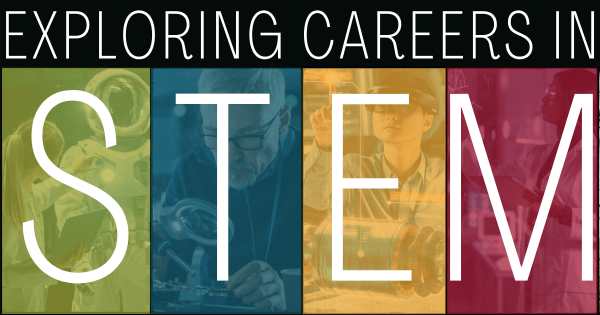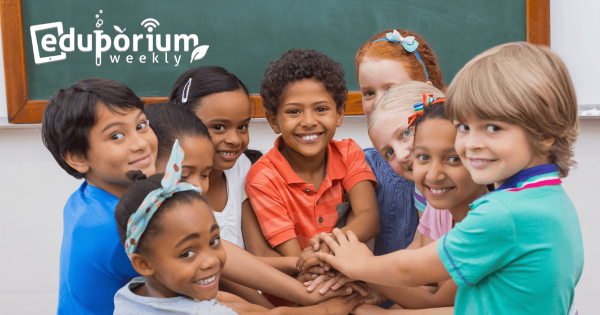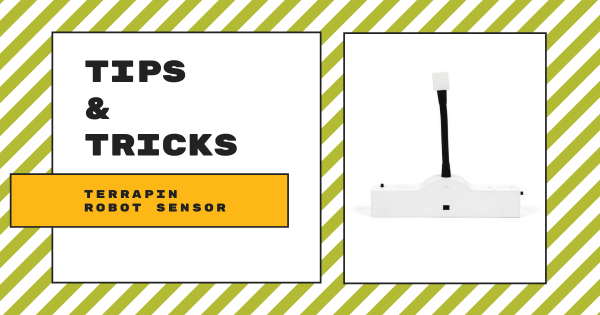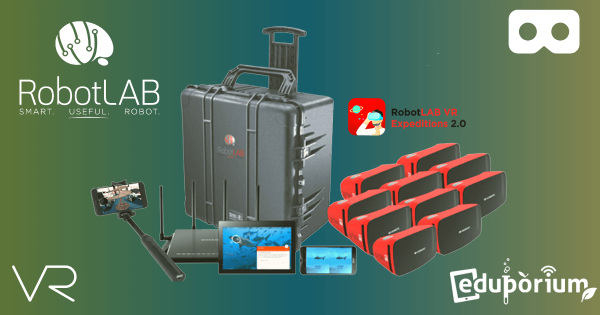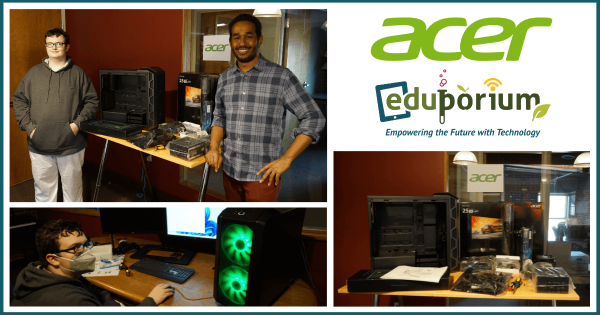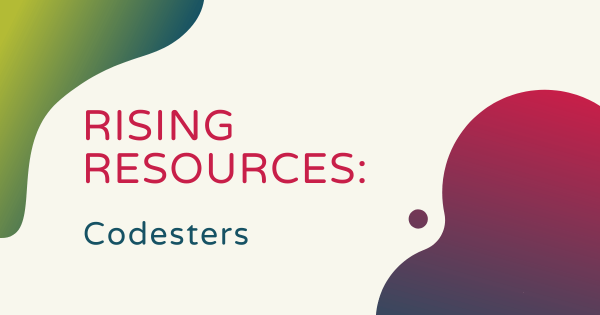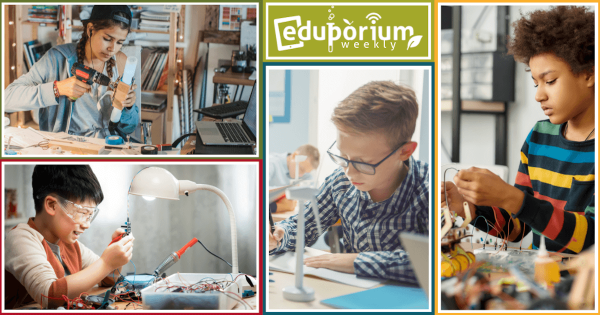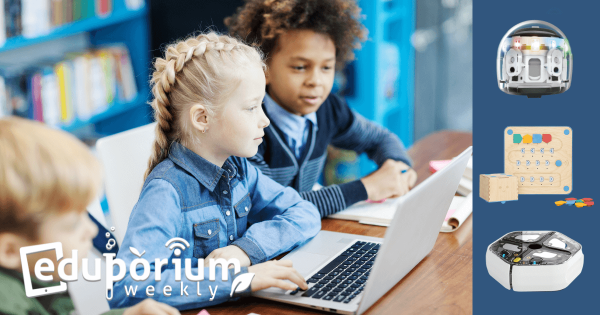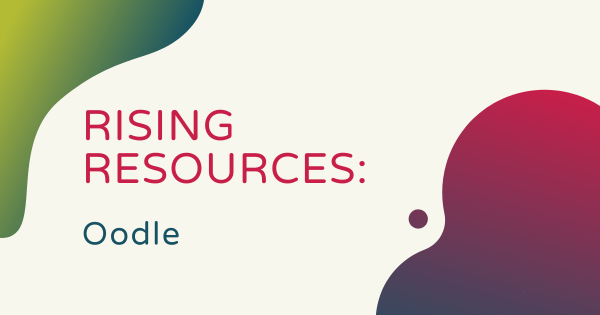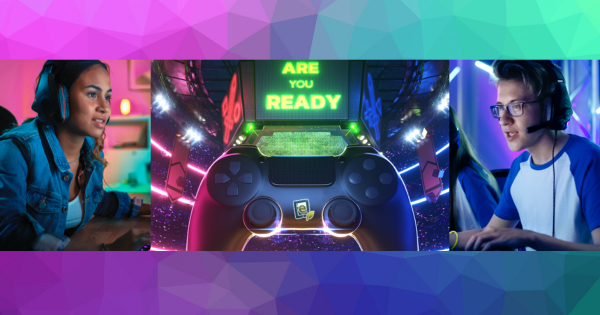STEM education is obviously a major piece of 21st century instruction and we know how important these experiences are for students. Many of those hard and soft skills they learn throughout elementary, middle, and into high school often help them better transition into a future career. Plus, for more and more of them, that career might be very closely related
STEM
When it comes to STEM in 21st century teaching and learning, there are few limits to what students can accomplish. Besides helping boost their overall engagement and enjoyment levels in the here and now, access to STEM learning and opportunities to build real-world skills often significantly improve how students prepare for the future. Whether it's with introducing them to coding in the early grades, engineering in their middle years, or the benefits of more complex technologies, like virtual reality or artificial intelligence, in high school, STEM education is a crucial piece of student development. With such huge potential and importance, however, this instruction requires planning, guidance, and equipment. And, as the economy keeps trending toward STEM-dominated professions and opportunities, exposure to these areas is vital. Thankfully, there are few restrictions to leading effective STEM lessons.
Our mission is helping educators develop students who are truly Future Ready and helping them facilitate relevant learning is how. To that end, we offer a robust online store filled with the latest STEM solutions. But, beyond that, we love creating and sharing impactful content to help enhance how educators use these tools in instruction. In this section of our blog, you'll find countless posts on trending STEM topics, how-to articles, many recommendations for classroom solutions and projects, industry updates, connections between STEAM tools and the future, and a lot more. We are also extremely committed to closing certain gaps and increasing equity in STEM education. As such, a lot of this content contains context for advancing inclusive opportunities for all kids. We encourage you to search through the posts to find something relevant for you. And, if there's any topics we've missed, let us know.
-
Eduporium Weekly | Teaching Empathy In The Classroom
Particularly since the pandemic began, educational leaders and classroom teachers have had to rethink a lot of their instructional strategies. And, one of the biggest focus areas has been around SEL and ensuring all students feel comfortable expressing their thoughts among their peers—something that’s done a lot to bring conversations about empathy into the classroom. -
Tips & Tricks | The Terrapin Robot Sensor + Bee-Bot And Blue-Bot
The compact and affordable Terrapin Robot Sensor allows students to add audio feedback and increase interactivity of their Bee–Bot coding activities or Blue–Bot experiments. It’s really easy to use and provides teachers with a great next step as they start expanding robotics for elementary students, bolstering SEL connections, and introducing new types of technology. -
The RobotLAB VR Expeditions 2.0 System For The Classroom
It remains unfortunate that kids can no longer use the Google Expeditions app to find engaging and immersive lessons, tours, and experiences. The good news, however, is that the Expeditions 2.0 platform from RobotLAB makes a very reliable alternative. With a variety of classroom VR kits and others with AR, these solutions work great in 21st century schools. -
A Teen's Journey To Building A Full Gaming System
About three years back, Logan and his family learned that he had inherited a rare genetic condition known as TANC2 Syndrome. Instantly, most of the normalcy slipped out of his life—with near-constant hospital visits, medical tests, and physical struggles—but one thing that remained was his passion for gaming, leading to his mom helping him learn to build his own system. -
Rising Resources | Codesters And Classroom Coding
Codesters is a digital programming platform that truly helps teachers keep student coding opportunities flowing. In this Rising Resources post, we are exploring Codesters and why it’s such a helpful platform for anyone who is teaching coding in the classroom. To start, it’s free for educators to sign up and it helps make coding lessons fun and challenging for students. -
How Teachers Can Help Foster A STEM Mindset In Students
There are, of course, many different pedagogical approaches that can lead to effective instruction. These days, teachers might be fond of promoting a growth mindset, a maker mindset, or perhaps even instilling a collaborative mindset in children. Whatever buzzwords we toss around, however, they’re only as effective as the purposeful teaching techniques that result. -
Eduporium Weekly | Coding For Kids Of Different Ages
There are typically two primary options for younger kids (or older students) to get started with coding: either physical tools or digital tools. Most of our expertise involves the physical coding tools, including educational robotics kits, circuitry solutions, or even programmable drones. Especially following the remote learning era, however, there are also strictly virtual platforms. -
Rising Resources | Using Oodle Like Wordle For Math
If you are familiar with Wordle, the Oodle math game is very similar. Instead of guessing those 5-letter words without much context, however, kids have to build out an equation that’ll work with the answer they were given. So, if the answer to a puzzle is 41, they’d have to figure out all other elements to the equation in six -
High School Esports Benefits And Starting An Esports Team
What started simply as competitions among lifelong gamers has ballooned to this billion-dollar industry with professional video game players squaring off in tournaments around the world, students earning scholarships to play in college, and learning how to make money. Esports has even permeated high schools and it’s providing brand-new opportunities for development.




